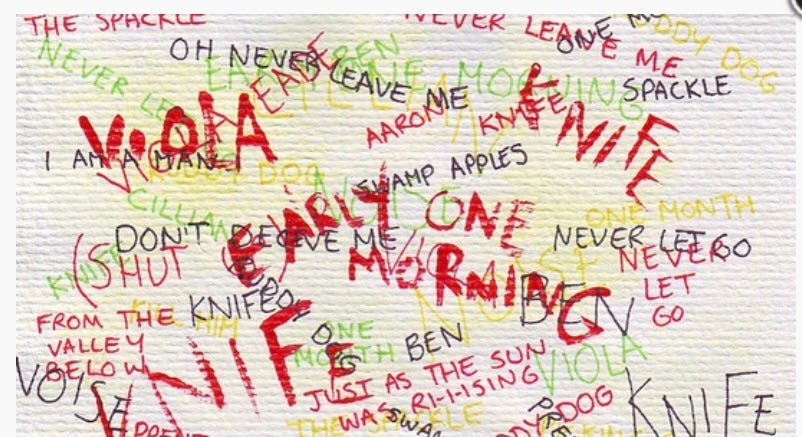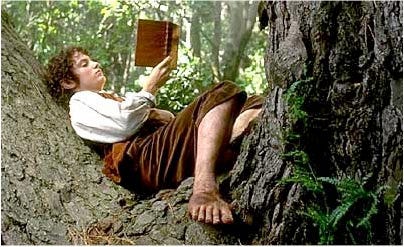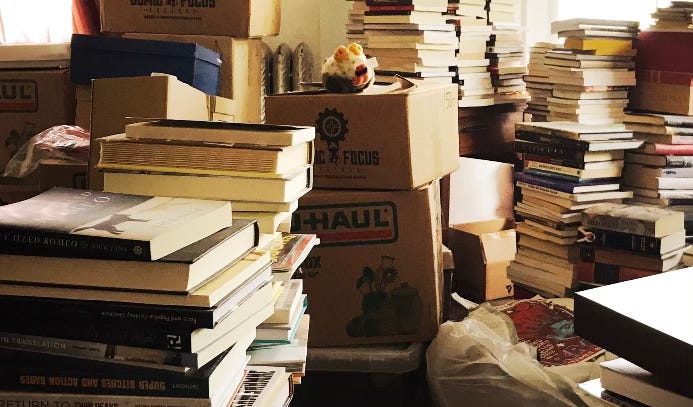PROTECT YOUR READING
or How I Learned To Read Like Stephen King Writes (Simplicity 1)
In our last newsletter, I mentioned three simplicities that have helped me return to my writing.
The first was reading — that radiant omphalos from which most writers’ art derives.
Originally I thought it was enough to state that reading has been essential to my return to writing — over and out. But this morning I realized that my bromide was insufficient, like insisting a young person “Eat Healthy” when they’re trapped in a food desert. A little more has to be said, and so here it is.
The other two simplicities will follow shortly for paid subscribers (sorry); if you wish to wait for those, be my guest; some folks might find my reading commentary pretty pedestrian.
So about reading.
Understand: like many bookish types, I’m a reader hardbody, value that humble practice above almost all other things. Like the spice of Dune or the Force of Star Wars or the X-gene of Marvel mutants, reading can transform a person, utterly. It sure as hell transformed me — into a full human being and into a writer.
In books a terrible beauty is always waiting to be born, for anyone willing to read.
Now, I could sing the song electric of reading forever, but let’s not pretend: reading, like all that is precious and contemplative in our societies, is under severe threat. The numbers are worrying af. As Mackenzie Kilano reports:
A 2021 survey from the Pew Research Center found that 23% of American adults have not read a book in any form in the last year; reading for pleasure is becoming less popular among American adults, despite all its benefits. Those who do still read for pleasure are now reading less per day, as evidenced by a decrease from 23 minutes each day in 2004 to only 16 minutes in 2019. The lack of reading is especially alarming for children and adolescents in the midst of a crucial period for brain development. A survey conducted by National Assessment of Educational Progress found that children aged 9 years old to 13 years old are reading for pleasure less than children in 1984 were.1
Blame it on the stochastic precarities of this neoliberal age. Blame our screens and their addictive capture of our attention spans. Blame the frantic reactivity that all-of-the above stokes, a reactivity that makes dropping down into the Slow Zone of limbic connection, of reading, harder and harder.
Still, given all the loot and elite energies being directed at pulling people away from any kind of contemplative practice, what I’m struck by is not how little people are reading, but how much. That reading has held on against the unceasing provocations of our digital overlords speaks well of all who love this most hobbit-like of vocations.
Yay, Team! But still, there’s no denying that even the most bookish of us ain’t finding it as easy to read as before. Therefore, if you’re serious about reading (and if you’re serious about writing you should be serious about reading), yes, you need to read — but also you need to take actions to make reading possible. You need to protect the time and space and mental attitude that reading requires.
In this day and age, the First Rule of Write Club is not Reading; the First Rule of Write Club is Protect Your Reading.
Protect your reading how? you may ask.
Well, there are plenty of strategies, from designated reading times to a strong meditational practice that will help safeguard your reading, but there is no doubt that the best protection plan is one you design yourself for yourself — no one knows you better than you, after all: your weaknesses, your graces, how best to organize your defenses and sideline your temptations.
I can, however, tell you what works for me.
GOALS
First and foremost, I try to Read Like Stephen King Writes. Stephen King is famous for writing X-amount of words every day without fail; as a reader, I attempt to emulate his rigor; I try to read a minimum of an hour every day without fail. No matter what’s going on in my life, I set aside space-time to hit my minimum. Of course I often read a lot more than that. When my Read Like Stephen King Writes is going especially swell I will read a book every three days. When it’s going especially weak, three days will turn into ten. But as long I’m reading daily it’s all good.
The idea is not to beat yourself up about it — writers have enough temptations to beat themselves up about. Reading is perhaps the one area I try to be forgiving: as long as I’m trying my best I call it a win. Good reminder to all hardcases that one can set goals without having to resort to the inner lash to achieve them.
THE RITUAL OF READING (or AMENABLE CONDITIONS)
Some folks need a special chair or nook; a particular café that they love. Whatever makes reading easier on the ground, create those amenable conditions.
I make it easy for myself to Read Like Stephen King Writes by stacking books where I eat, books where I sleep, books in the bathroom. I’m sure if I had waterproof books I’d keep a few in the shower. I have book apps installed on my phone and every time I’m tempted to scroll, I open my book queue and read.

NOISE REDUCTION
Lots of anti-reading clamor in our world. Makes the Noise in Ness’ THE KNIFE OF NEVER LETTING GO seem like a kindly hymn by comparison. One needs to figure out how to muffle it.
Biggest anti-reading noise for me is social media, so I avoid most of it. I still use Facebook (sorry!) where I post all my news consumption in case anyone’s interested and read my substacks, but I don’t do Twitter, Instagram, TikTok. I’m not saying a person can’t indulge in these and still maintain a healthy reading ecology or that these platforms are more intrinsically disruptive than others; I’m just saying that I can’t mess with them and still have enough nervous system left for reading.
Because that’s absolutely key: if the society’s noise leaves your nervous system too revved — if you’re all up in your lizard brain instead of your limbic brain — real reading ain’t going to happen.
Skimming? OK, sure, but deep reading? That’s unlikely.
Again, I can’t speak for anyone else, but when I spend too much time on the socials, my focus erodes to a point that I have trouble reading anything, much less keeping a page of Morrison straight in my head. Morrison didn’t write for the Elon Musk shattermind; she wrote for the Slow Zone. Anyone can read Toni Morrison, but I would argue that unless your brain is in the Slow Zone you’re going to miss what Bruce Lee called all that heavenly glory.
OTHER HELPFUL PARRIES
Before sleep I read only books – no texts, no newspapers articles, no addictive vid-snips — just books, the older the better. (I find that dropping my mind down into the Slow Zone before lights out always helps me re-capture the Slow Zone the next day and that fuels both the writing and the reading.) On long rides I play audio books, especially ones that are rich in orality.
I guess what I’m saying is, with all the derangements of our neoliberal age, all readers need a reading protection, if we are to have any reading at all in the future. Treat reading like an endangered ecology. Defend it with a firm well-articulated plan. Improve the plan by constantly evaluating what kind of reading helps you drop into the Slow Zone of connection, contemplation, deliberation, and what kind of reading doesn’t.
Anyway, that’s enough for now. Obvious stuff, I know, but I just felt like I had to say it. (I haven’t even had the chance to tell you what type of reading helps my writing most, but that’s a topic for another communique. But if I had to sum my reading philosophy succinctly ala Michael Pollen, I’d say:
Read Books
All The Time.
Mostly By People of Color.
Next time… the other two simplicities.
https://www.michigandaily.com/opinion/the-power-of-reading/#google_vignette





none of us have enough time. ever. and all of us readers stack up more reading than anyone could read ever. in that contest, losses are going to be inevitable. i try not to worry about what gets left aside as long as I'm putting in a good couple of solid deep reading hours in a day. also i try to keep my newspapers / magazines / substacks for my mornings and my novel / critical readings for the afternoon/evening.
when it comes to finding free time in a neoliberal society, we all do the best we can. i might be childless but i am acutely aware that my parent friends are lucky to piece together 30 minutes a day for alone-time (as for the moms in my circle, even 30 minutes is a lot). understand; i'm not talking about everyone; just my little circle. my sense is that as long as we read a little every day or nearly every day we're still in the game. reading is a skill and a muscle, a praxis and a gateway but the muscle part is key. as anyone who works out will tell you, the difference between zero conditioning and even a little is, well, intergalactic. so even if you only put in 30 minutes of reading on a treadmill you are on your way to the stars.